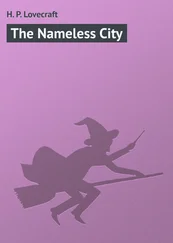Maurus Jokai - The Nameless Castle
Здесь есть возможность читать онлайн «Maurus Jokai - The Nameless Castle» весь текст электронной книги совершенно бесплатно (целиком полную версию без сокращений). В некоторых случаях можно слушать аудио, скачать через торрент в формате fb2 и присутствует краткое содержание. Город: New York, Год выпуска: 1898, Издательство: Doubleday, Page & Company, Жанр: Историческая проза, на английском языке. Описание произведения, (предисловие) а так же отзывы посетителей доступны на портале библиотеки ЛибКат.
- Название:The Nameless Castle
- Автор:
- Издательство:Doubleday, Page & Company
- Жанр:
- Год:1898
- Город:New York
- ISBN:нет данных
- Рейтинг книги:4 / 5. Голосов: 1
-
Избранное:Добавить в избранное
- Отзывы:
-
Ваша оценка:
- 80
- 1
- 2
- 3
- 4
- 5
The Nameless Castle: краткое содержание, описание и аннотация
Предлагаем к чтению аннотацию, описание, краткое содержание или предисловие (зависит от того, что написал сам автор книги «The Nameless Castle»). Если вы не нашли необходимую информацию о книге — напишите в комментариях, мы постараемся отыскать её.
The Nameless Castle — читать онлайн бесплатно полную книгу (весь текст) целиком
Ниже представлен текст книги, разбитый по страницам. Система сохранения места последней прочитанной страницы, позволяет с удобством читать онлайн бесплатно книгу «The Nameless Castle», без необходимости каждый раз заново искать на чём Вы остановились. Поставьте закладку, и сможете в любой момент перейти на страницу, на которой закончили чтение.
Интервал:
Закладка:
He had not been long in his tower of observation when he saw a heavy cloud of dust moving along the highway, and very soon was able to distinguish a body of horsemen. It was a company of cuirassiers, whose polished breastplates glittered in the sunlight like stars. The company was divided into two squads: one rode in front of a four-horse traveling-coach, the other in the rear of it.
There were two ladies in the coach. The elder of the two shielded her face from the dust with a heavy veil; the younger lady wore no veil over her pale face, but held in front of it a fan, from behind which she took an occasional look at the variegated plain, where the ripening grain, blended with the green of the meadows, formed a rich, carpet on either side of the road.
The young officer riding beside the coach sought to entertain the elder lady with observations on the country through which they were passing, and from time to time exchanged tender glances with the younger. These ladies were the wife and daughter of General Guillaume. They were on their way to Raab, where they expected an addition to their party in the person of la Princesse Marie , whom they were going to accompany to Paris. The troop of cuirassiers was their escort.
“There come some chasseurs on a foraging expedition,” observed the young officer, pointing toward a body of horsemen that was approaching across the green plain.
And, judging from the appearance of the riders, he was right; for the Volons, in order to deceive the Frenchmen, were bringing with them a couple of loaded hay-wagons, which they were dragging through the middle of the highway.
While yet a considerable distance away from the approaching chasseurs , the postilions began to blow their horns for a clear way.
The hay-wagons were turned, in obedience to the signal, but, in turning, the second one ran into the one in advance with such force that the pole was broken clean off.
In front of the barricade thus formed Vavel halted his men, and commanded them to throw off their French cloaks and helmets. In a second the order was obeyed; the crimson shakos with their grim death-heads were donned, and the troop dashed forward upon the escort accompanying the coach.
The astonished cuirassiers, who were wholly unprepared for the assault, were soon overpowered by the Volons, who also outnumbered them.
The youthful leader had at once placed himself in front of the coach, ready for combat with the leader of the attacking foe, and Vavel was obliged to exercise all his skill to disarm without injuring him.
At the moment when the young French champion’s sword flew from his hand, the younger lady, forgetting all ceremony, cried in terror:
“ Oh mon Dieu, ne tuez pas Arthur! ”
Ludwig Vavel turned toward her, bowed courteously, and said in Talma’s most exquisite French:
“Do not be alarmed, ladies. You are perfectly safe. We are Hungarian gentlemen!”
“But what do you want of us?” demanded the elder lady, haughtily surveying the count. “What business have we with you? We do not belong to the combatants.”
“I will tell this brave young chevalier what I want,” replied Vavel, turning toward the youthful leader. “First, let me restore your sword, monsieur. You handle it admirably, only you need to grasp it more firmly. Then, let me beg of you to mount your horse—a beautiful animal! And third, I beg you to ride as quickly as possible to Raab, and give General Guillaume this message: ‘I, Count Vavel de Versay, have this day taken captive the wife and daughter of General Guillaume. The general holds as prisoners my betrothed wife, Countess Themire Dealba, and my adopted daughter, Sophie Botta, or, if he prefers, la Princess Marie . I demand my loved ones in exchange for Madame and Mademoiselle Guillaume.’ I have no further demands, monsieur, and the sooner you return the better. I shall await you in yonder redoubt, where you see the church-steeple. Adieu.”
The younger lady, with hands clasped pleadingly, mutely besought the youthful officer to assent. As if he would not do everything in his power to urge the general to consent to the exchange! The young Frenchman galloped down the road toward Raab. Count Vavel took his place beside the coach, and ordered the postilions to drive to Börcs. At first, the general’s wife heaped reproaches on her captor.
“This is a violation of national courtesies,” she exclaimed irately. “It is brigandage, to waylay and take as prisoners two distinguished women.”
“Madame’s husband has also detained as prisoners two distinguished women,” in a respectful tone responded Vavel.
“But my daughter is so nervous.”
“There is not a more timid creature in the world than my poor little Marie.”
“At all events, monsieur, you are a Frenchman, and know what is due to ladies of our station.”
“In that respect, madame, I shall follow General Guillaume’s example.”
They were now among the gardens of Börcs, where the cherry-trees, heavily laden with fruit, rose above the tall hedges; and very soon they turned into a beautiful street shaded by walnut-trees, which led to the redoubt. The parsonage was the only house of importance in the village. The pastor was standing at his door when Vavel ordered the coach to stop. He assisted the ladies to alight, and begged the pastor to grant them the hospitality of his roof. The request was not refused, and the ladies were made as comfortable as possible.
“Do you care to see the sights of the village, madame?” asked Vavel of the mother, after they had partaken of the lunch prepared by the pastor’s housekeeper. The young lady, who was exhausted by the journey, had gone to her room. “There is a very old church here which is interesting.”
“Are there any fine pictures in it?” inquired madame.
“There is one,—a very touching scene,—’The Samaritan.’ ”
“Ancient or modern?” queried the lady.
“The subject is old—it dates back to the first years of Christianity, madame. The execution is modern.”
“Is it the work of a celebrated artist?”
“No; it is the work of our clerical host.”
The lady shook her head; she was uncertain whether Count Vavel was making sport of her or of the pastor.
But she understood him when she entered the church. The house consecrated to the service of God had become a hospital, and was crowded with wounded French soldiers. The women of the village, as volunteer nurses, were taking care of them, and performed the task as faithfully as if the invalids were their own sons and brothers. The pastor himself supplied the necessary medicines from his own cupboard; for no army surgeon came here at a time when twenty thousand wounded Frenchmen lay at Aspern, and twenty-two thousand at Wagram.
“Is it not an affecting tableau, madame?” said Count Vavel. “It would be a suitable altar-piece for Notre Dame—and the name of its creator deserves perpetuation!”
CHAPTER III
Monsieur le Capitaine Descourcelles rode an excellent horse, was a capital rider, and was plainly very much in love. These three circumstances combined brought back the gallant soldier from Raab by five o’clock in the afternoon.
The captain of the cuirassiers was not a little surprised to find the general’s wife playing cards with the hostile leader.
“General Guillaume agrees to everything,” he announced immediately, on entering the room. “He will release the ladies he has been holding as prisoners.”
Vavel hastened to shake hands with the bearer of these glad tidings, who was, however, more eager to kiss the hand of Vavel’s partner, and to inquire:
“I hope I find the ladies perfectly comfortable?”
“Very comfortable indeed,” replied madame. “ Messieurs les Cannibales are very polite, and leur Catzique plays an excellent hand at piquet.”
Читать дальшеИнтервал:
Закладка:
Похожие книги на «The Nameless Castle»
Представляем Вашему вниманию похожие книги на «The Nameless Castle» списком для выбора. Мы отобрали схожую по названию и смыслу литературу в надежде предоставить читателям больше вариантов отыскать новые, интересные, ещё непрочитанные произведения.
Обсуждение, отзывы о книге «The Nameless Castle» и просто собственные мнения читателей. Оставьте ваши комментарии, напишите, что Вы думаете о произведении, его смысле или главных героях. Укажите что конкретно понравилось, а что нет, и почему Вы так считаете.












